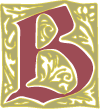dbm
Savage!
For battle maps specifically, assuming you are playing face-to-face, map books are great. I have a collection of Loke Battlemap books and they can be used to spin up an interesting and sufficiently representative map in a few seconds. All their books are designed to work together so you can mix and match. These days they sell digital versions, too.
Knowing your system well enough to either quickly select enemies or stat them in the fly is also really helpful. Savage Worlds is my primary system and I can both create enemies spontaneously if needed as well as it having multiple bestiaries to draw from. Breaking the assumption of ‘fair encounters’ is also important as that shifts the task of deciding ‘is this fight winnable’ from the GM to the players, and arguably that is the better place for it! Your duty switches to ensuring you give them enough description in-game so they have a chance of making that assessment. And they should start engaging in IC research of potential foes, too.
If you can, encouraging your players to have goals for their characters is also great. These should hopefully cause them to initiate activity and then you can focus on deciding what obstacles that entails or how the world responds. In terms of world response, having factions defined is helpful here so you know who the main NPC groups are and what they care about. This allows you to have intersecting threads going on (I’m deliberately avoiding the word ‘plot’) which the PCs will encounter, trip over, get pulled into or bump up against. Document any changes in faction status or disposition quickly either in play or briefly after each session. Do a quick random selection of threads to progress as 5-10 minute prep before the next session.
Knowing your system well enough to either quickly select enemies or stat them in the fly is also really helpful. Savage Worlds is my primary system and I can both create enemies spontaneously if needed as well as it having multiple bestiaries to draw from. Breaking the assumption of ‘fair encounters’ is also important as that shifts the task of deciding ‘is this fight winnable’ from the GM to the players, and arguably that is the better place for it! Your duty switches to ensuring you give them enough description in-game so they have a chance of making that assessment. And they should start engaging in IC research of potential foes, too.
If you can, encouraging your players to have goals for their characters is also great. These should hopefully cause them to initiate activity and then you can focus on deciding what obstacles that entails or how the world responds. In terms of world response, having factions defined is helpful here so you know who the main NPC groups are and what they care about. This allows you to have intersecting threads going on (I’m deliberately avoiding the word ‘plot’) which the PCs will encounter, trip over, get pulled into or bump up against. Document any changes in faction status or disposition quickly either in play or briefly after each session. Do a quick random selection of threads to progress as 5-10 minute prep before the next session.



